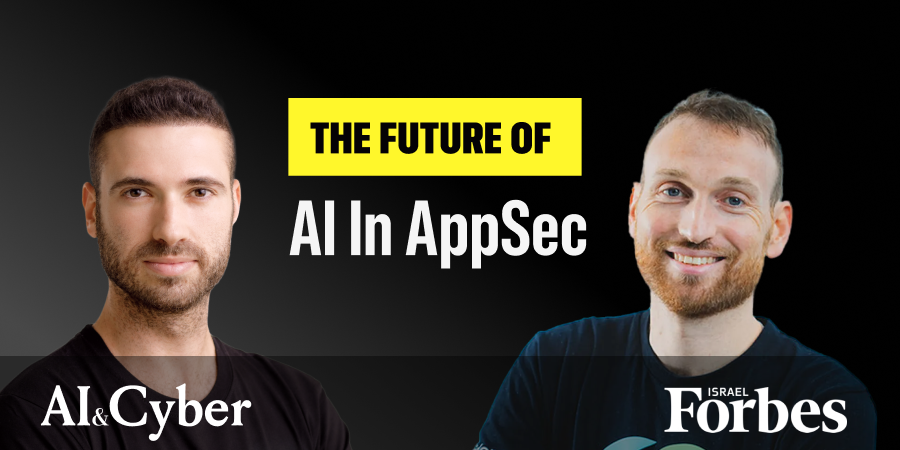The cybersecurity landscape is undergoing a profound transformation, driven by the rapid proliferation of artificial intelligence (AI). In a recent discussion with Daniel Krivilevich, founder of Cider Security (now part of Palo Alto Networks), it became clear to me that enterprise security practices need to fundamentally evolve—not only to keep up with new threats but to leverage AI’s unprecedented potential for proactive defense.
Krivilevich, whose career spans elite Israeli cybersecurity institutions like Unit 8200, Sygnia, and now Palo Alto Networks, has witnessed firsthand the evolution of enterprise security from reactive to proactive measures. He began his cybersecurity journey at the intersection of intelligence and technology in the elite Unit 8200, later diving into hands-on offensive cybersecurity roles. His extensive experience has shaped his belief in the necessity of integrating attacker perspectives into defensive strategies.
During our conversation, Krivilevich highlighted a pivotal moment from his experience at Sygnia, calling it “the best enterprise security school in Israel,” because it allowed professionals to experience real attacks, revealing vulnerabilities that traditional security approaches often overlook. “At Sygnia, you detach from standard best practices and compliance frameworks, experiencing real-world attacks firsthand,” Krivilevich explained. “You see exactly how attackers behave, how defenders respond, and how effective your technologies truly are.”
This practical experience led him to co-found Cider Security with Guy Flechter, then a Chief Information Security Officer. Their vision was born from a critical insight: as software became the central driver of business success, CI/CD pipelines evolved into the heartbeat of development operations, yet remained alarmingly underprotected. “Organizations had built CI/CD systems that acted as open pathways directly into production environments,” Krivilevich pointed out. The severity of this vulnerability was dramatically underscored shortly after Cider Security’s inception by the SolarWinds attack, one of the most notorious supply chain breaches in cybersecurity history.
AI’s role in cybersecurity today is undeniable. According to Krivilevich, AI amplifies the complexities of cybersecurity but also presents unprecedented opportunities to defend against emerging threats. As AI tools proliferate, developers and organizations adopt vast ecosystems of third-party dependencies, each potentially exposing systems to new vulnerabilities. Krivilevich explained, “Every repository today contains thousands of dependencies, each introducing potential vulnerabilities. Traditional sensors generate an overwhelming amount of alerts, making it impossible for security teams to keep up effectively.”
However, AI is uniquely positioned to solve the very problems it exacerbates. By contextualizing security risks through continuous, scenario-based analysis, AI allows for the precise prioritization of threats. “Security practitioners today demand not just alerts, but clear prioritization,” Krivilevich emphasized. “They need tools that pinpoint the exact scenarios posing genuine threats, enabling focused remediation.”
This evolution requires a significant shift in the mindset and operation of enterprise security teams. Historically, cybersecurity operations have often functioned in silos, but AI-driven technologies are increasingly integrating these silos into cohesive, responsive security frameworks. “AI-driven approaches enable organizations to simulate attack scenarios continuously, adapting to threats in real-time and dramatically improving incident response capabilities,” Krivilevich noted.
Yet, AI is reshaping more than just cybersecurity tactics—it’s redefining the fundamental categories that have long structured the industry. As we enter what Krivilevich terms the “agentic AI era,” traditional categories defined by static boundaries and siloed controls are becoming obsolete. In their place, organizations are adopting dynamic, AI-powered agents tailored to specific cybersecurity tasks, orchestrated seamlessly to provide comprehensive, adaptive protection.
Reflecting on our conversation, it’s evident to me that organizations can no longer afford passive security strategies. Security leaders must embrace AI-driven technologies that not only understand the complexities of modern threats but proactively counteract them in real-time.
As Daniel concluded powerfully, “The best is yet to come. We’re still early in leveraging AI fully, but the potential is immense.” For organizations ready to embrace this shift, the opportunities for significantly stronger, more dynamic cybersecurity are unprecedented. For those unwilling to evolve, the risks are equally unprecedented.
Michael Matias is the CEO and Co-Founder of Clarity, an AI-powered cybersecurity startup backed by venture capital firms including Bessemer Venture Partners and Walden Catalyst. Clarity develops advanced AI technologies protecting organizations from sophisticated phishing attacks and AI-generated social engineering threats, including deepfakes. Before founding Clarity, Matias studied Computer Science with a specialization in AI at Stanford University and led cybersecurity teams in Unit 8200 of the Israel Defense Forces. Forbes Israel recognized him early on, naming him to the exclusive 18Under18 list in 2013 and the Forbes 30Under30 list thereafter. Matias authored the book Age is Only an Int and hosts the podcast 20MinuteLeaders.
Embracing AI-driven cybersecurity isn’t just wise—it’s essential. Organizations must act decisively or risk being left defenseless against tomorrow’s threats.
Michael Matias is the CEO and Co-Founder of Clarity, an AI-powered cybersecurity startup backed by venture capital firms including Bessemer Venture Partners and Walden Catalyst. Clarity develops advanced AI technologies protecting organizations from sophisticated phishing attacks and AI-generated social engineering threats, including deepfakes. Before founding Clarity, Matias studied Computer Science with a specialization in AI at Stanford University and led cybersecurity teams in Unit 8200 of the Israel Defense Forces. Forbes Israel recognized him early on, naming him to the exclusive 18Under18 list in 2013 and the Forbes 30Under30 list thereafter. Matias authored the book Age is Only an Int and hosts the podcast 20MinuteLeaders.





